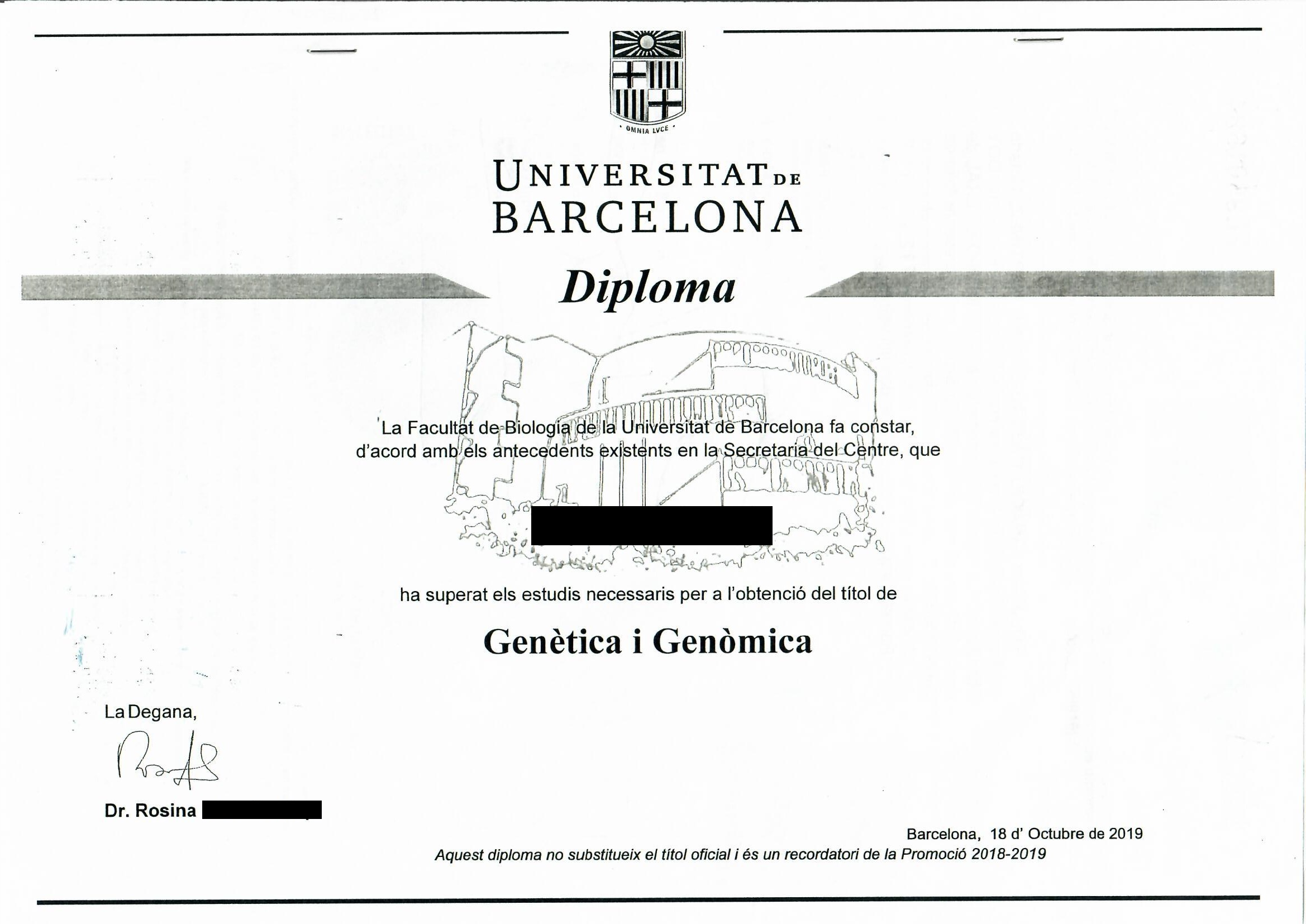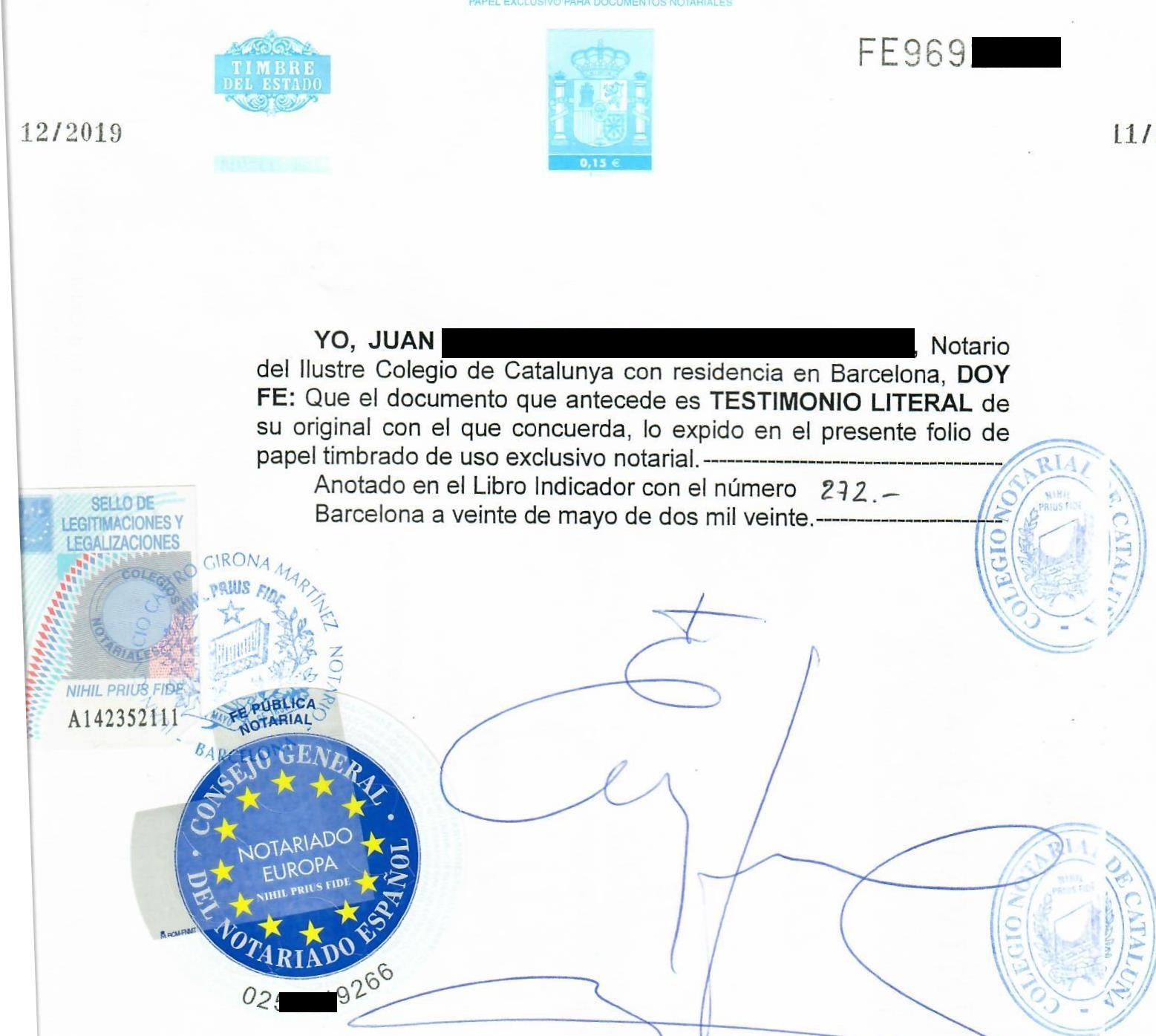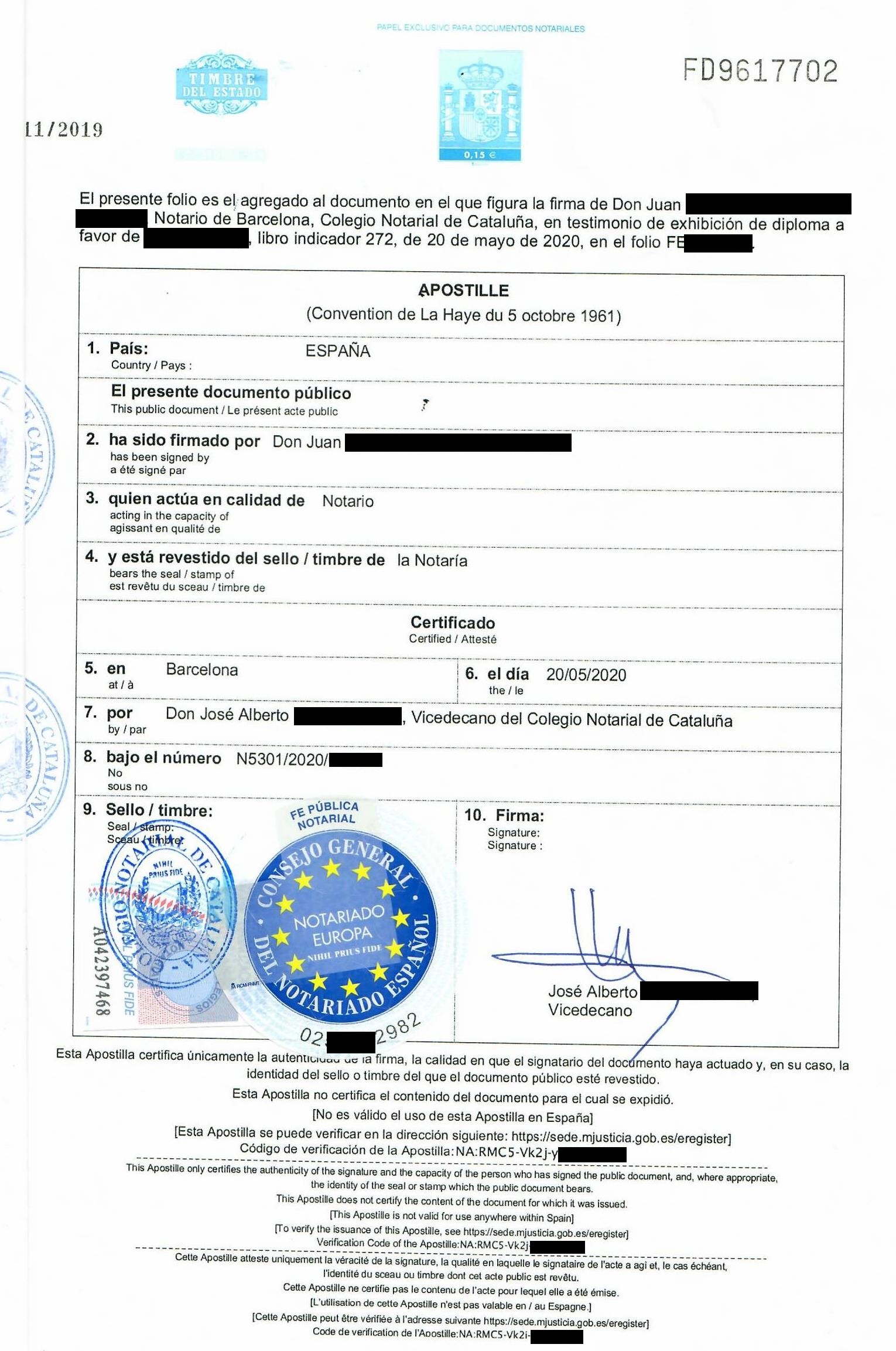
Degrees, certificates and other educational documents issued in Spain have no legal force abroad. In practice, this means that if such a document is not legalized, it will not be possible to enter graduate or post-graduate programs, or to get a job at a public institutions.
If you plan to use your Spanish diploma in a country that is a signatory to the 1961 Hague Convention, it can be legalize it through a simplified procedure known as Apostille.
Why and in what cases is an apostille needed?
The apostille, or the “Hague apostille” is a certificate that authenticates the origin of a public document (e.g., a birth, marriage or death certificate, a judgment, an extract of a register or a notarial attestation). It confirms the authenticity of the signature and the authority of an official who signed the public document.
Commercial documents cannot be apostilled. Therefore, if you received a certificate of educational courses from a private company, which does not have an educational license, you will not be able to certify it with an apostille. Only documents from certified educational institutions with an official state license can be legalized through the apostil procedure.
At the same time, it should be kept in mind that Apostille confirms the fact of document issue and authenticity of signature of an authorized official, but it does not imply automatic access to work in specialized spheres.
An apostille stamp can only be affixed in the territory of the country in which the document was issued. It cannot be done through diplomatic or consular offices. The system of certifying documents by apostille in Spain is quite simple: the apostille is placed either on notarized copies of degrees, which are taken from local notaries, at the notarial board of the autonomous region where the notary is registered. Or on the original diploma, when the university itself certifies the degree in the office of the decedent. The second way is much more complicated and expensive, although for foreign authorities, as a rule, there is no difference whether the apostille is on the notarial copy or on the original.

When is an apostille not needed?
Most commercial organizations, when hiring employees for positions that do not require special access, will not require them to legalize their diploma through an apostille. In addition, the degree does not need to be apostilled if there is a special treatment between Spain and another country (such as in the case of EU countries, where there is a unified educational system throughout the EU).
The process of obtaining an apostille for degrees in Spain
The system of certifying documents with an apostille in Spain is quite simple:
The first step - making a notarized copy at the nearest notary.
The second step - apostille at the notary's office of the autonomous region where the notary is registered.
Due to the fact that notary boards are only authorized for their region, for example, it is not possible to apostille a notarized copy of the diploma from Barcelona in Madrid. It should also be kept in mind that the diploma and its annex are apostilled in Spain as two separate documents. It is not possible to staple the diploma with the annex and have it apostilled with one apostille.

The notary confirms the authenticity of the diploma only upon presentation of the original diploma to him. When notarizing a copy of the diploma, the notary writes information about the notary, puts his seal and signature on the back of the diploma.
Notarization of documents usually takes 1-2 working days.
After notarization, documents for apostilization should be submitted to the notary board, where the notary is registered.
It usually takes 1-5 business days to obtain an apostille from the board. However, deadlines may vary due to the workload of the state authority.
Spain is the only country where duplicate degrees and other educational documents issued by Spanish Consulates abroad can be apostilled.
Documents required for legalization:
- The original degree;
- If necessary, the original diploma supplement.
What is an apostille?
What is an apostille? Why do I need an apostille? How do I get an apostille? - Our video will explain everything you need to know about the apostille. If you have a document that needs to be certified with an apostille for use abroad, Schmidt & Schmidt will assist you! We provide apostille services in more than 100 countries worldwide.
The appearance of the apostille in Spain is unified in all areas and differs only in the stamp of the collegia.
If you need to have a document issued in a foreign country apostilled, contact Schmidt & Schmidt.
We provide apostille services in more than 100 countries around the world.
Document delivery
Since in Spain notarized copies are only taken with the original document, it will be necessary to send the document directly to Spain. The cost of such courier delivery is calculated according to the rates of courier services.

Consular legalization
If your diploma is to be used in a country that is not a party to the Hague Convention, such as China, the United Arab Emirates, or Egypt, the document is subject to consular legalization. This is a more complicated procedure than apostilization. The consular legalization procedure for diplomas in Spain takes place in several steps:
- Taking a notarized copy of degree. This usually takes 1-2 business days.
- Certification at the Consular Section of the Madrid Ministry of Foreign Affairs. This usually takes 5-10 working days.
- Certification at the embassy of the country of destination. As a rule, it takes 1-5 working days, depending on the schedule of the embassy and its workload.
The first step can be performed at the level of the local autonomous region where the notary who made the notarized copy of the diploma is registered. However, the remaining steps must be certified by the Spanish Ministry of Foreign Affairs and the Consulate of the country of destination, both located in Madrid.
Translation of an education documents
In order to use an education document abroad, after legalization it is necessary to make an official notarial translation. If the translation is made by a certified translator in Spain, the official authorities will not accept it.
The translation of the document must necessarily go through a verification procedure. This is a process in which the prepared translation is sent to the graduate to verify the correct spelling of the first and last name, the disciplines studied and the topics of research papers, since there may be inaccuracies in the translation.
A notarized translation can be laced with an apostilled notarized copy.
What is consular legalization?
In our video we are explaining what consular legalization is and where to apply for it.
Schmidt & Schmidt will assist you in all issues concerning the legalization.
Schmidt & Schmidt offers legalization in more than 80 countries all over the world.
You can always contact Schmidt & Schmidt, we have extensive experience in the legalization of a variety of documents and we provide all the necessary services in this area, including the making of notarized copies, translation, preparation of the necessary powers of attorney, legalization of documents before government agencies and foreign consulates, as well as delivery of finished documents to most countries in the world.




